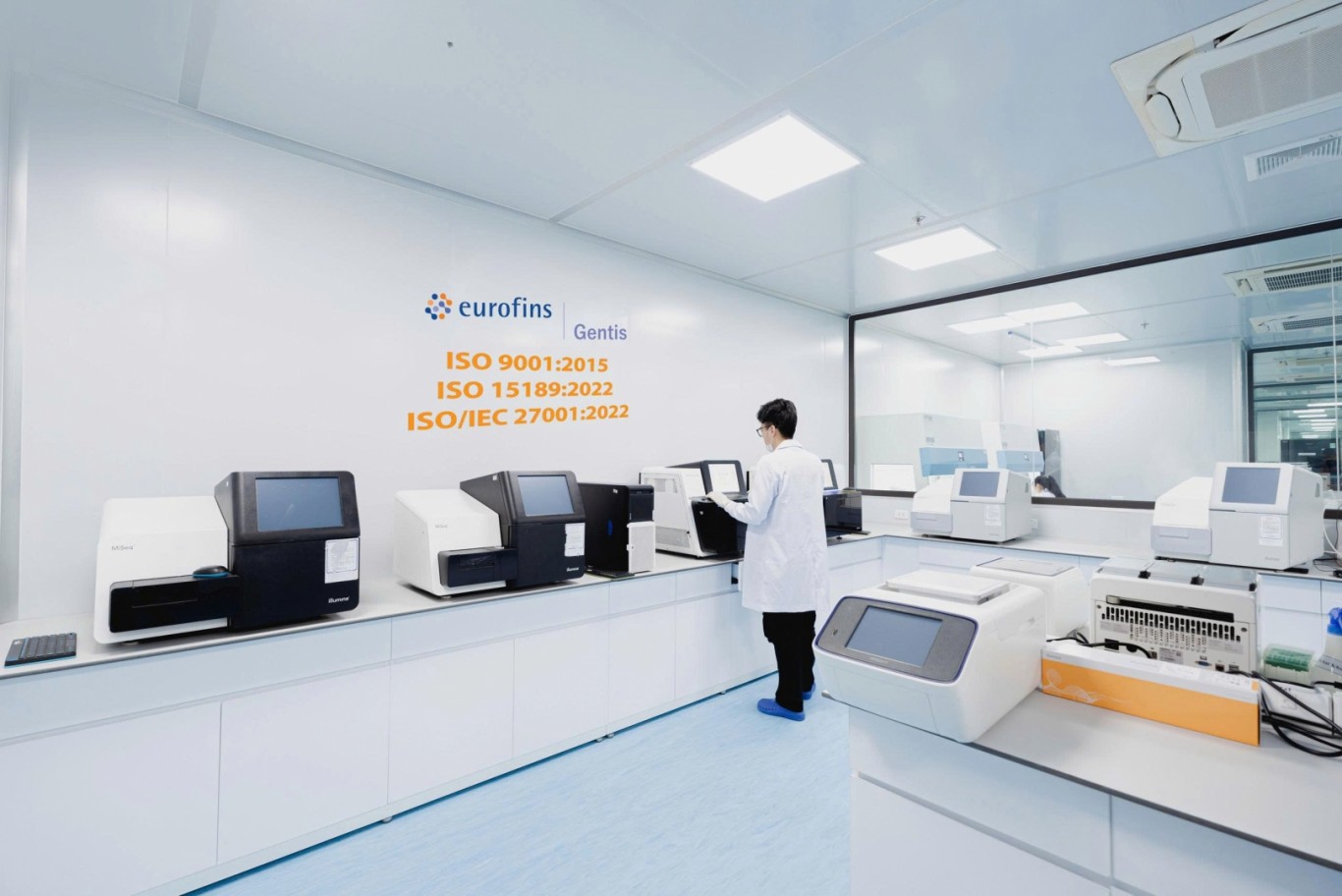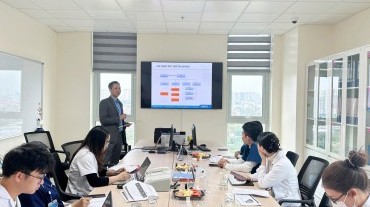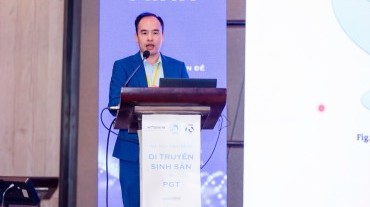The event, which took place on Dec.14 gathered heaps of prestigious experts in the field of reproductive assistance, both domestically and internationally. Notably, The conference had the presence of 3 chairpersons: Dr. Le Quang Thanh - Former Director of Tu Du Hospital; Assoc Prof. Dr. Hoang Thi Diem Tuyet - Director of Hung Vuong Hospital; and Dr. Pham Dinh Minh - Director of R&D Department at GENTIS.
The conference was honored to have the companions of 3 leading reporteres in the assisted reproductive field in Vietnam as well as Italy. The in-depth reports provided comprehensive perspectives towards advancements in PGT testing
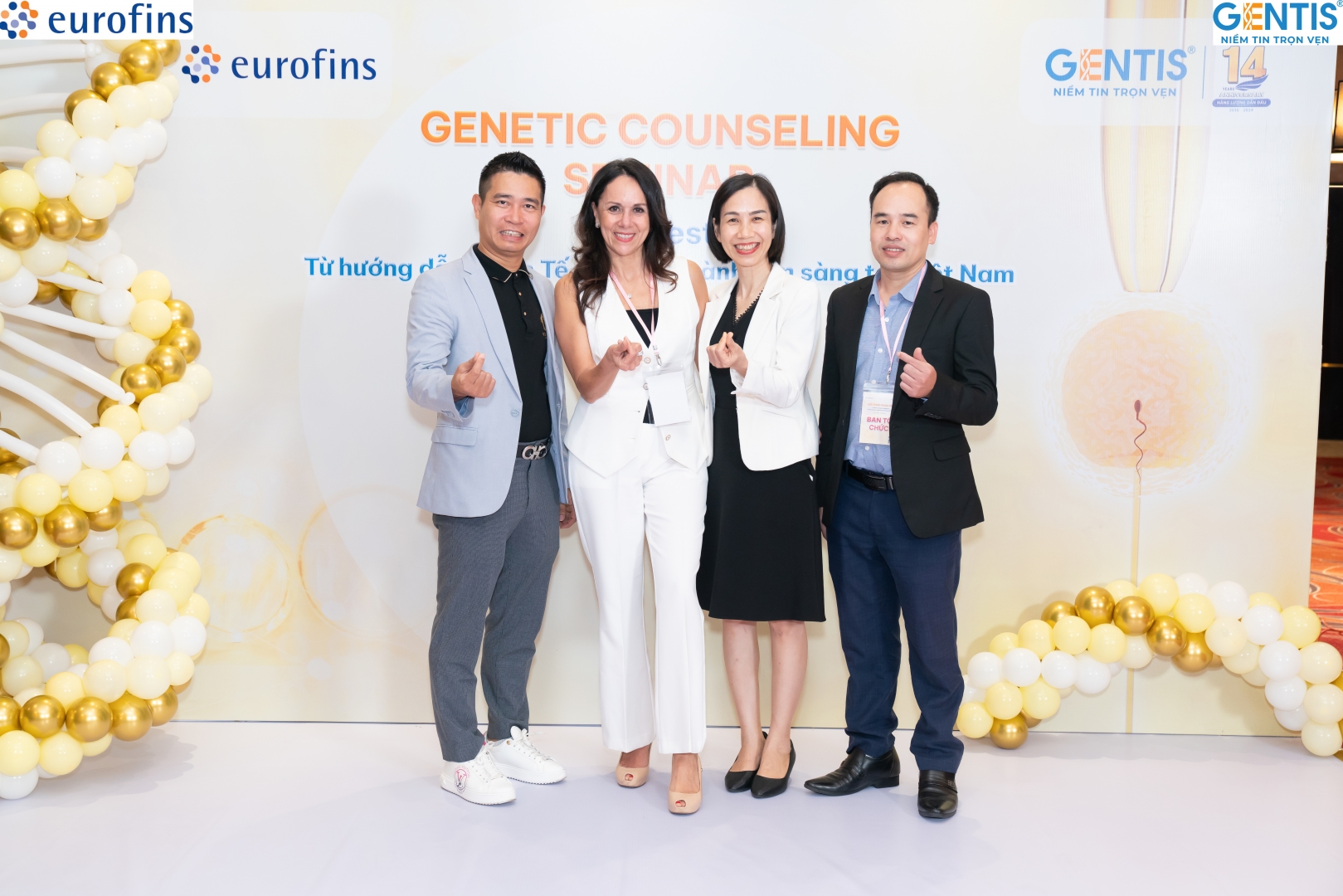
Specialist Doctor Level 1 Nguyen Van Thong, Head of the Department of Medical Genetics at Hung Vuong Hospital, shared on: “Genetic Counseling Before and After PGT Testing: Practical Experience”. Dr. Thong explained that genetic counseling is the process of providing information, support, and guidance regarding genetics and genetic risk factors for individuals or families. This helps assess the risk of genetic diseases based on family history or genetic test results. It also involves educating patients about genetic-related conditions such as cancer, genetic disorders, or congenital abnormalities.
In addition, the counselor discusses the benefits, limitations, and risks of genetic testing to help patients make informed decisions. After receiving genetic test results, doctors explain the findings and their implications for the individual's and family's health. Furthermore, genetic counseling also provides psychological support to help patients and families cope with the concerns or emotions related to the results or genetic risks. Additionally, doctors will work with patients to discuss monitoring, treatment, or preventive measures based on genetic risks.
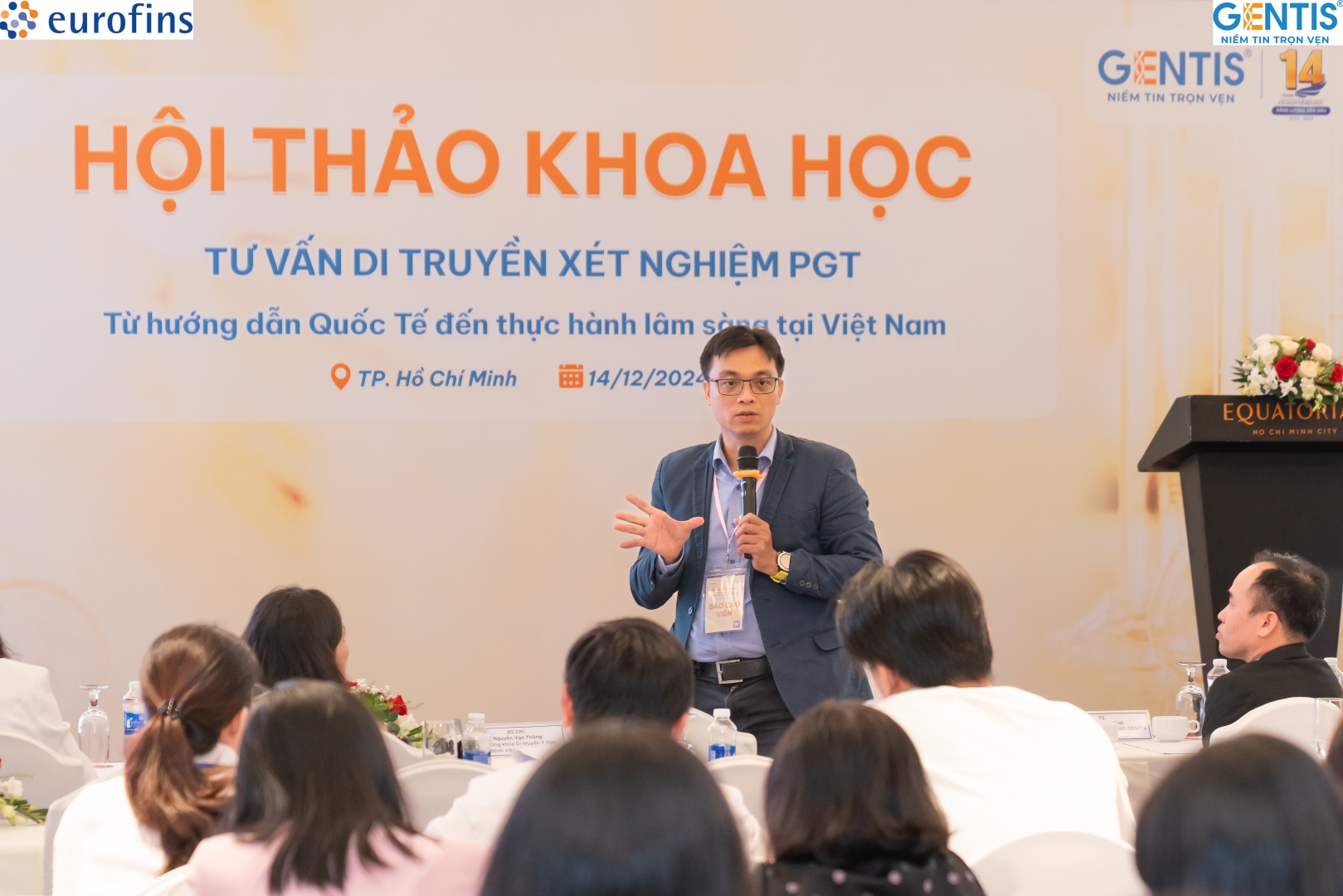
The presentation also highlighted the importance of collaboration between genetic experts, infertility specialists, embryologists, and healthcare professionals to ensure maximum effectiveness in the testing process. Dr. Thong further shared the role of PGT testing in helping couples have healthy children through the screening and detection of genetic abnormalities. Technological advancements in PGT-A/SR, PGT-M, and PGT-Max 1 not only increase the chances of successful pregnancy but also minimize the risks of miscarriage and severe genetic diseases in the fetus.
Assoc. Prof. Dr. Francesca Spinella, Senior Medical Information Specialist at Eurofins Genoma Group and Senior Expert Advisor at GENTIS, presented on "Advancements in PGT and Genetic Counseling." Dr. Spinella shared the latest data and trends from the ESHRE PGT Consortium, providing an in-depth view of the current status of PGT and genetic counseling for PGT testing in Europe.
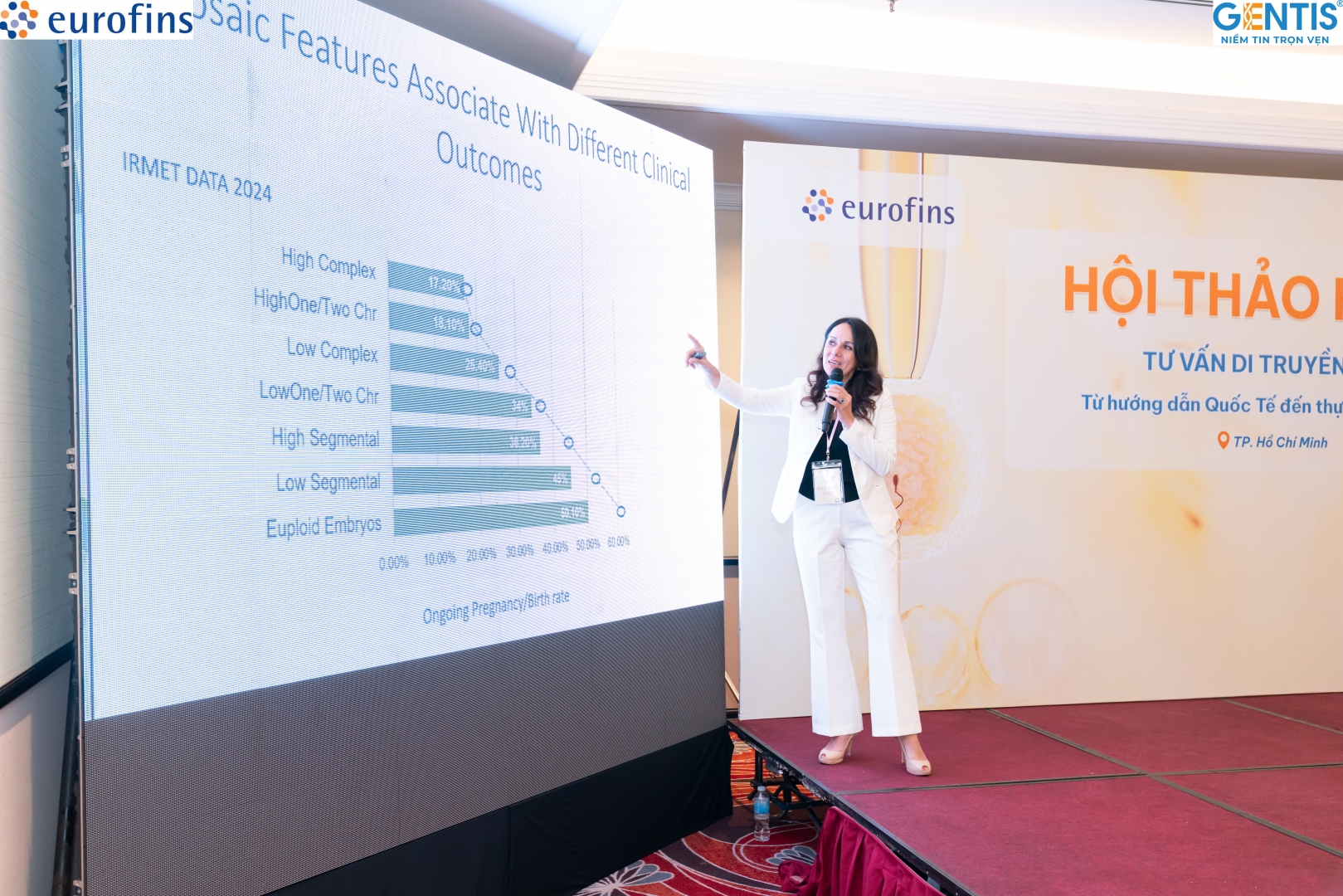
Additionally, she shared experiences from the Eurofins Genoma lab with PGT-Next, an advanced technology combining genetic evaluation and DNA analysis, opening up new potential for improving clinical outcomes. She presented initial results and the potential of this test for future IVF applications.
Dr. Le Thi Minh Chau, Head of the Infertility Department at Tu Du Hospital, presented on "Screening for Genetic Abnormalities in PGT from a Clinical Perspective." In this presentation, Dr. Chau shared practical experience from clinical cases of PGT testing at Tu Du Hospital.

Dr. Chau noted that over the past thirty years, there have been rapid technological advancements in genetic testing and assisted reproduction, reshaping the PGT process. The development of whole genome amplification (WGA) tools, along with the implementation of optimized hormonal stimulation protocols and more effective cryopreservation methods, has led to more accurate diagnoses and improved clinical outcomes. Furthermore, the shift from day 3 to day 5 or early day 6 embryo biopsy has changed the timing of a typical PGT clinical process.
Although PGT helps reduce the need for pregnancy termination in certain cases, such as in families with single-gene disorders, PGT remains the only relevant choice for prenatal diagnosis. However, PGT is a solution that requires careful discussion and consensus guidelines. Among the challenges are the complexity of the IVF procedure, especially for couples with no fertility issues, the risk of misdiagnosis, potential embryo damage from invasive procedures, and some ethical concerns. Therefore, the decision to undergo PGT is complex and always involves a stressful decision-making process.
Through these three in-depth presentations and lively discussions among the chairpersons, speakers, and conference participants, GENTIS hopes that attendees gained valuable insights and the latest knowledge about Preimplantation Genetic Testing (PGT). Furthermore, it helped participants understand the value and practical applications of PGT tests in reproductive medicine, contributing to improving clinical outcomes and supporting patients in making informed decisions.

